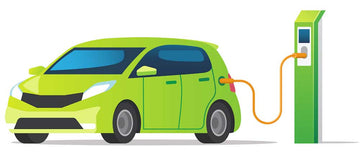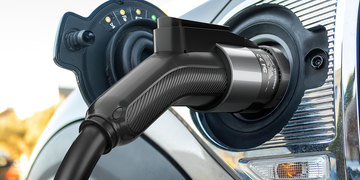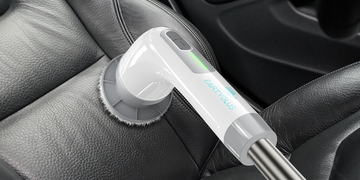What is the difference in cost between Level 1 and Level 2 chargers? You're essentially making a cost comparison of free versus $500 to $1,000 when comparing Level 1 and Level 2 charging stations. While the cost for a Level 2 charging station is higher, it's important to factor in the time savings and convenience of being able to rapidly charge your car.
One crucial aspect to consider when installing a home charging station is the choice between Level 1 and Level 2 chargers. In this article, we will delve into the differences in cost between these two types of chargers to help you make an informed decision.
Understanding Level 1 and Level 2 Chargers:
Level 1 Chargers:
Level 1 chargers are the most basic and often come standard with electric vehicles. These chargers use a standard household outlet (120 volts) and typically deliver a charging rate of around 2 to 5 miles of range per hour. While Level 1 chargers are convenient for overnight charging, they may not be the most efficient option for users who require faster charging speeds.
Level 2 Chargers:
Level 2 chargers, on the other hand, provide a faster charging solution. These chargers use a 240-volt outlet and can deliver a charging rate of 10 to 60 miles of range per hour, depending on the charger's power output and the vehicle's compatibility. Level 2 chargers are commonly used in residential settings and public charging stations to provide a quicker and more practical charging experience.
Cost Considerations:
Charger Unit Cost:
Level 1 chargers are generally less expensive than Level 2 chargers. Basic Level 1 chargers that use a standard household outlet can cost as little as $200, making them an affordable option for those on a budget. In contrast, Level 2 chargers, with their increased power output and additional features, typically range from $500 to $1,500 or more.
Installation Costs:
The installation costs for Level 1 chargers are minimal since they utilize existing household outlets. However, Level 2 chargers often require professional installation, involving additional electrical work and the installation of a 240-volt outlet. Installation costs can vary based on factors such as electrical panel upgrades, distance from the main panel, and local labor rates. On average, Level 2 charger installation can range from $500 to $2,000 or more.

Pros and Cons of Level 1 Charging Stations
Level 1 charging equipment comes standard with new electric vehicles and can be plugged into a standard household power outlet in your garage.
Advantages of Level 1 Charging Stations:
The primary benefit of sticking to a Level 1 charger is the absence of setup costs. Charging an electric vehicle with a Level 1 charger only requires access to a commercial-grade power outlet.
If your vehicle comes with a charger, you essentially incur no additional costs, including any special installation fees. You can charge your car at Level 1 without any prior knowledge of how electrical components work.
The portability of Level 1 charging stations is useful if you occasionally park your car in different homes. You just need to carry the cable with you and can plug your car into any available outlet.
Finally, Level 1 charging stations offer weather-resistant and safety switch features to protect you from electric shock in the event of a current leak.
Disadvantages of Level 1 Charging Stations:
A significant drawback of sticking to Level 1 charging stations is the slow charging time. A 60 kW electric car battery takes almost 32 hours to fully charge under 1.9 kW charging conditions. In comparison, the disadvantages become apparent as a 60 kW electric car battery charges in 5.5 hours at a 2nd level charging station with 11 kW.
Pros and Cons of Level 2 Charging Stations:
Should you consider upgrading to a Level 2 charging station? Many drivers have done so without regrets, but this option is not entirely cost-free.
Advantages of Level 2 Charging Stations:
A major benefit of upgrading to a Level 2 charging station is the faster charging speed. Electric cars plugged into a Level 2 charging station can be fully charged in just 5.5 hours, compared to nearly 36 hours with a standard electric car plug.
Similar to Level 1 stations, Level 2 stations come equipped with safety switches and weather-resistant features.
Disadvantages of Level 2 Charging Stations:
The only real drawback of Level 2 charging stations is the need to pay for installation by a local electrician. Most people pay $500 to $1,000 for home installation of a Level 2 charger.
Another potential downside is that your charger becomes a permanent part of your house after installation. This means you cannot uninstall it for portable charging. Of course, if you're traveling and uncertain about charging stations along the way, you can always carry a Level 1 power cord with you.
What is the difference in cost between Level 1 and Level 2 chargers? While Level 1 chargers offer a cost-effective and straightforward charging solution, Level 2 chargers provide faster charging times and are a more versatile option for users with higher daily driving needs. The cost difference between Level 1 and Level 2 chargers extends beyond the initial purchase price, encompassing installation expenses and potential incentives.





